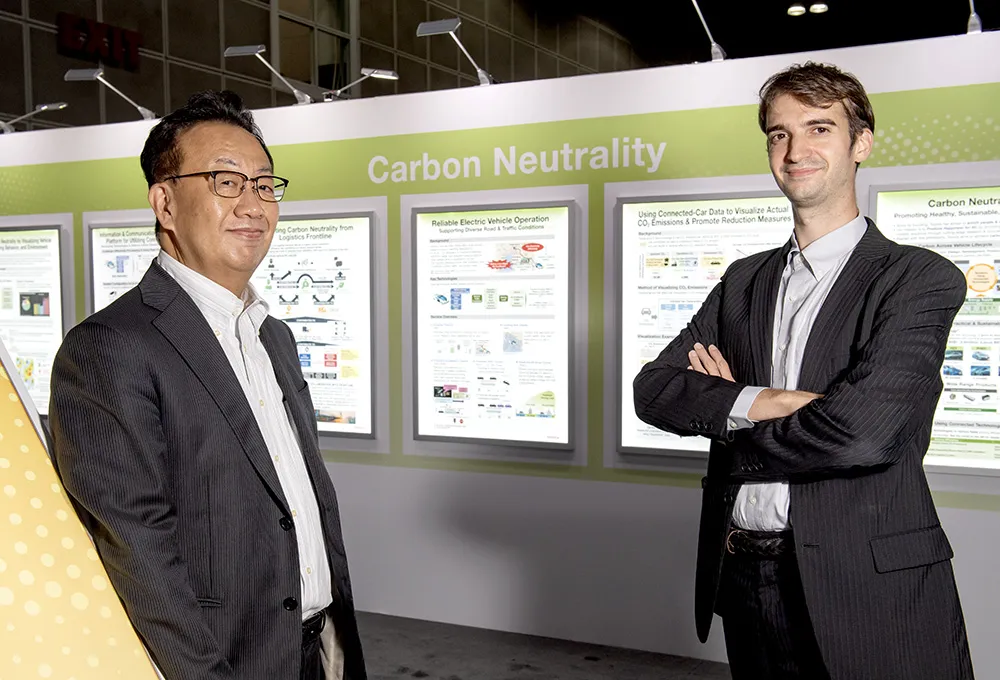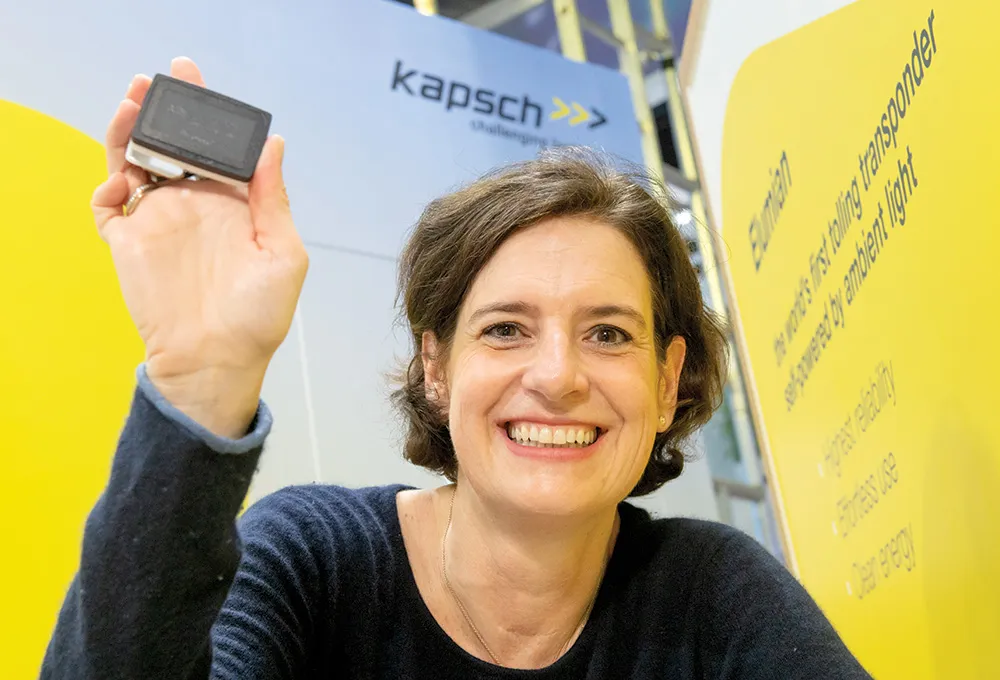February 27, 2023
A new spin on a very familiar piece of ITS technology: the company's Green Gantry is made from wood but can still support signs, sensors and so on, and has a modular design.
Kapsch says this "allows an installation comparable to standard steel bridges and also with the same service life and maintenance intensity".
Each steel gantry creates over 30 tons of CO2 during its production, the company adds - but the wood version "binds more than 20 tons of CO2 and thus has a positive carbon footprint" and "paves the way for sustainable road infrastructure".









